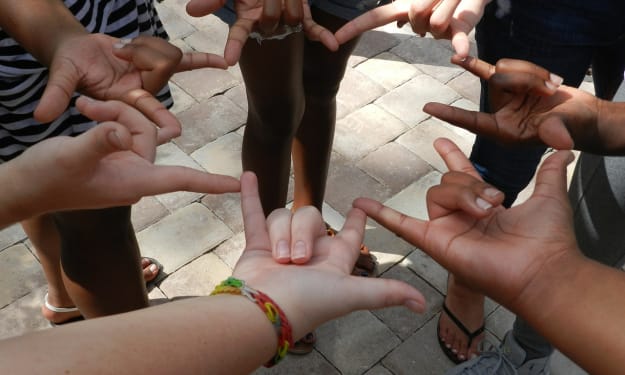Disclosure Without Consent
A Blister among People with Disabilities

I'd like to discuss a topic that happens innocently enough, but really makes things awkward for some people with disabilities.
Introducing People
How many of you have a friend or relative with a disability and when you introduce them to other people it goes like:
"This is Steve, he's [insert disability]."
Right off the bat, you let a stranger know the other's person's "faults." You've set up the meeting to fail from the beginning.
This was posted on Facebook a while back by J. Sims:
"Disempowerment by disclosing something personal like about an individual's disability without consent is a thorny source of feeling under-privileged!"
It's that person's sole right to disclose their disability or not. Many are proactive in telling the general public what they need for accommodations and we have done fine before you introducing them, and will continue to be fine without you.
When you do that, it automatically changes the mental perspective of the other person before they've known you.
Is that really fair?
In my case, friends and family would introduce me and go, "She's deaf." I can physically see the facial changes to awkwardness and now they're enunciating slowly, "How....are....you?"
If my friend or family had left out that part, people will just greet me like everyone else. If I missed something, I just simply say, "Sorry, can you look at me when you talk please," and the conversation continues without batting an eyelash.
See the difference?
If my deafness wasn't directly pointed out, it will become obvious sooner or later—the asking to repeat, the deaf accent, and so on.
Disclosure without Consent
People are pretty familiar with HIPAA laws and not to disclose private medical information without prior consent. Why can't this be applied to everyday circumstances?
Many people are already uncertain on how to talk to or interact with someone who has a disability. Introducing a new person with a disability will bring up that discomfort, and now you have two awkward people and one oblivious friend who saw no harm in their introduction.
Socializing with people with disabilities should be no different from any other socialization.
Let the person with the disability disclose the information if they feel they need to. They've lived with it much longer than you have known them and know how to deal with it.
Introduce the person with the disability by their name and maybe how you know them. Period. "This is Joyce, we worked together in the past."
Turning the Tables
Let's turn the tables a bit, how would it feel being introduced as:
"This is Joe, he's impotent."
"This is Sue, she has 15 parking tickets due."
"This is Don, he has three mistresses."
See how uncomfortable (and no one's business) it has become now?

The conversations are not going to go well now are they? People are going to be asking questions about your private information—"Have you tried Cialis?" "I know a good lawyer that can help you with that," "Does your wife know about all this?"
This happens when someone is introduced with a disability, instead of talking about why you're introduced in the first place—a meeting, a party, a lunch date, etc.—you're discussing the disability. Believe us, we've talked it to death before and we would just like to enjoy the moment instead.
So, stop disclosing things about us without our consent. I know you want to help us, but I promise you, it doesn't help at all.
Check out this video on the top five mistakes people make when interacting with disabled people.
Any People with Disabilities (PWD) have more suggestions for other ways around this?
About the Creator
Tracy Stine
Freelance Writer. ASL Teacher. Disability Advocate. Deafblind. Snarky.
Enjoyed the story? Support the Creator.
Subscribe for free to receive all their stories in your feed. You could also pledge your support or give them a one-off tip, letting them know you appreciate their work.






Comments
There are no comments for this story
Be the first to respond and start the conversation.